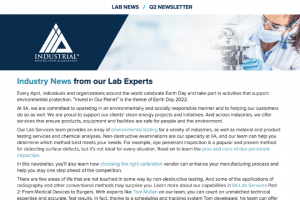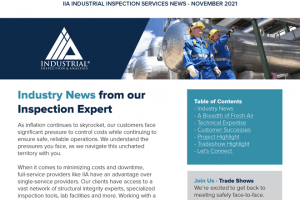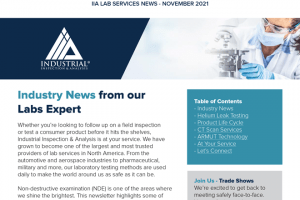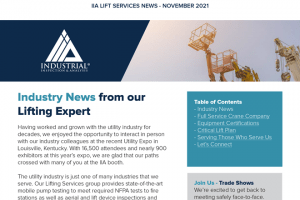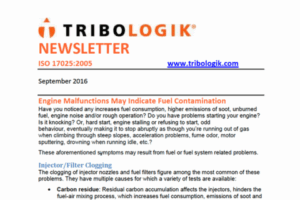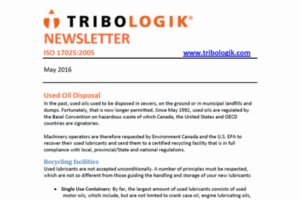Every April, individuals and organizations around the world celebrate Earth Day and take part in activities that support environmental protection.
Industry News from our Inspection Expert In this Q4 IIS Newsletter, we showcase all that is to know about the industry. As inflation continues to skyrocket, […]
In our Q4 Labs Newsletter, you’ll find the industry news from our Labs Expert Whether you’re looking to follow up on a field inspection or test […]
Let’s get the Q4 Engineering Newsletter rolling. Here’s the Industry News from our Engineering Expert “The more, the merrier” may be a great philosophy for family […]
Check out our Q4 Lift Services Newsletter our Lifting Expert Having worked and grown with the utility industry for decades, we enjoyed the opportunity to interact […]
Industry News from our Labs Expert As your needs grow, we’re continuing to grow cutting-edge technologies and inspections for you. We recently added Medical Device Testing […]
In emergency situations, where power breakdowns are not an option, emergency power generators must take over within a fraction of a second. In this context, fuel quality may be a matter of life and death like in hospitals, where continuous operation of medical equipment is critical, or airports, water treatment plants, hotels, government buildings, office towers, municipalities, data centers, etc.
Have you noticed any increases fuel consumption, higher emissions of soot, unburned fuel, engine noise and/or rough operation? Do you have problems starting your engine? Is it knocking? Or, hard start, engine stalling or refusing to start, odd behaviour, eventually making it to stop abruptly as though you’re running out of gas when climbing through steep slopes, acceleration problems, fume odor, motor sputtering, drowning when running idle, etc.?
In the past, used oils used to be disposed in sewers, on the ground or in municipal landfills and dumps. Fortunately, that is now longer permitted. Since May 1992, used oils are regulated by the Basel Convention on hazardous waste of which Canada, the United States and OECD countries are signatories.
It is not unusual to receive at the lab an oil sample with the wrong type of oil on the label, i.e. whose specs do not correspond to the specs of the reference oil. This usually is an indication that different types of lubricants have been mixed together.

